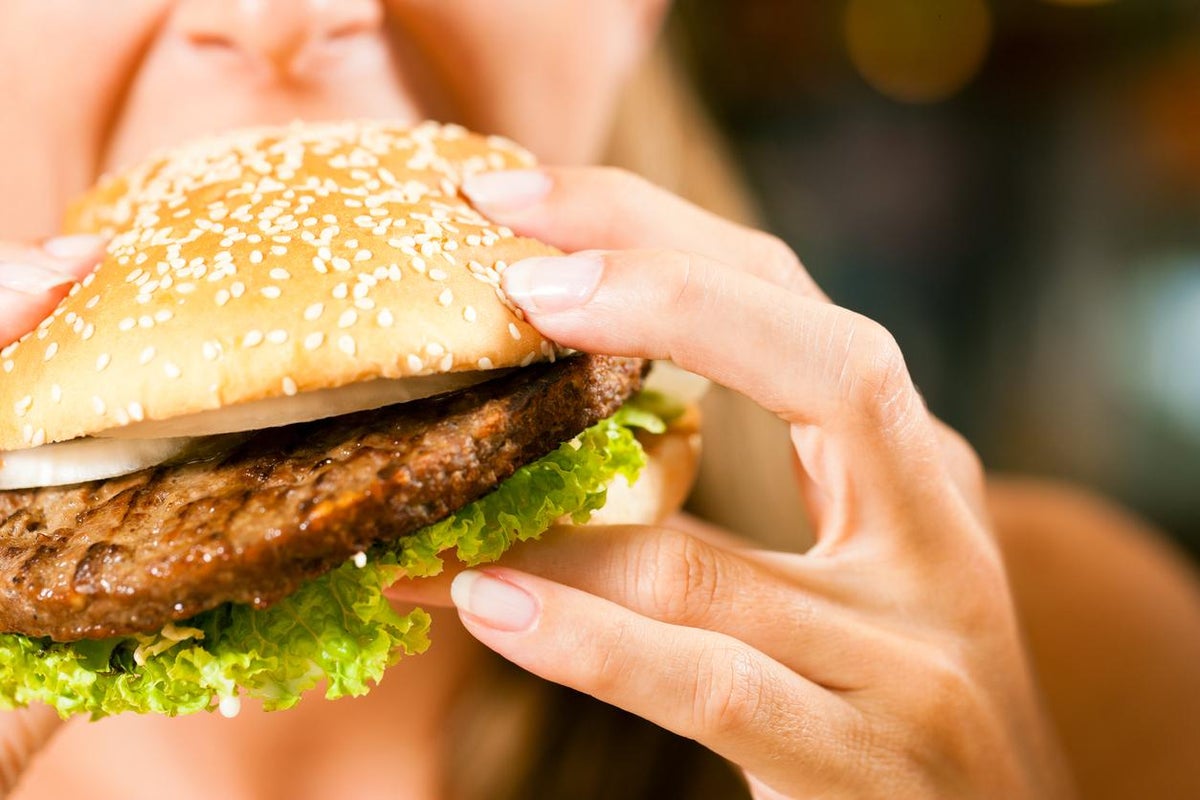Health
Ultra-Processed Foods Linked to Increased Lung Cancer Risk

A recent study has established a concerning link between ultra-processed foods (UPFs) and an increased risk of lung cancer. In both the UK and the US, over half of the average diet consists of these foods, which include ready meals, fast food, and sugary beverages. The research, published in the journal Thorax, reveals that consuming UPFs may significantly elevate the chances of developing lung cancer, particularly non-small cell lung cancer (NSCLC) and small cell lung cancer (SCLC).
According to the World Cancer Research Fund, lung cancer is the most prevalent cancer globally, with an estimated 2.2 million new cases and 1.8 million deaths reported in 2020. The study’s findings add to previous research published in the British Medical Journal (BMJ) in 2024, which linked UPFs to a variety of severe health issues, ranging from heart disease to type 2 diabetes.
The research team utilized data from the US Prostate, Lung, Colorectal and Ovarian Cancer Screening Trials, involving 155,000 participants aged between 55 and 74. Participants were randomly assigned to either a screening group or a comparison group from November 1993 to July 2001. Their cancer diagnoses were tracked until the end of 2009, with mortality data followed until the end of 2018.
Of the 101,732 individuals who completed dietary questionnaires, 1,706 new lung cancer cases were diagnosed, comprising 1,473 NSCLC and 233 SCLC cases. The study found that those consuming the highest amounts of UPFs faced a staggering 41% greater likelihood of being diagnosed with lung cancer compared to their counterparts with the lowest intake. Additionally, they were 37% more likely to develop NSCLC and 44% more likely to develop SCLC.
While the research establishes a connection, it acknowledges limitations due to its observational nature. The researchers could not account for the intensity of smoking, which is a known risk factor for lung cancer. Moreover, dietary data was collected only once at the beginning of the study, limiting their ability to track changes over time.
Despite these limitations, the study underscores the low nutritional value of UPFs, highlighting their excessive levels of salt, sugar, and unhealthy fats. “The rise in UPF consumption may have driven global increases in obesity, cardiovascular disease, metabolic disorders, cancer, and mortality,” the researchers stated. They also pointed to the industrial processes that alter food matrices, affecting nutrient availability and absorption, while introducing harmful contaminants, such as acrolein, commonly found in grilled sausages and some sweets.
Nutritionist Rob Hobson, author of Unprocess Your Family Life, emphasized the importance of viewing these findings within the broader context of food environments. He noted that while the study cannot definitively prove that UPFs cause cancer, it does highlight the need for greater scrutiny of the prevalence and marketing of these foods, which are often cheap and convenient.
Hobson recommends making gradual dietary changes, such as cooking more from scratch, incorporating whole foods like vegetables, beans, and grains, and being mindful of the frequency of UPF consumption. “It’s not about being perfect; it’s about balance and understanding how your food choices could be supporting or undermining your long-term health,” he advised.
As more research continues to explore the implications of ultra-processed foods, this study serves as a critical reminder of the potential health risks associated with dietary choices. Reducing UPF consumption could play a vital role in mitigating the global impact of lung cancer and other serious health conditions.
-

 Entertainment2 months ago
Entertainment2 months agoIconic 90s TV Show House Hits Market for £1.1 Million
-

 Lifestyle4 months ago
Lifestyle4 months agoMilk Bank Urges Mothers to Donate for Premature Babies’ Health
-

 Sports3 months ago
Sports3 months agoAlessia Russo Signs Long-Term Deal with Arsenal Ahead of WSL Season
-

 Lifestyle4 months ago
Lifestyle4 months agoShoppers Flock to Discounted Neck Pillow on Amazon for Travel Comfort
-

 Politics4 months ago
Politics4 months agoMuseums Body Critiques EHRC Proposals on Gender Facilities
-

 Business4 months ago
Business4 months agoTrump Visits Europe: Business, Politics, or Leisure?
-

 Lifestyle4 months ago
Lifestyle4 months agoJapanese Teen Sorato Shimizu Breaks U18 100m Record in 10 Seconds
-

 Politics4 months ago
Politics4 months agoCouple Shares Inspiring Love Story Defying Height Stereotypes
-

 World4 months ago
World4 months agoAnglian Water Raises Concerns Over Proposed AI Data Centre
-

 Sports4 months ago
Sports4 months agoBournemouth Dominates Everton with 3-0 Victory in Premier League Summer Series
-

 World4 months ago
World4 months agoWreckage of Missing Russian Passenger Plane Discovered in Flames
-

 Lifestyle4 months ago
Lifestyle4 months agoShoppers Rave About Roman’s £42 Midi Dress, Calling It ‘Elegant’









